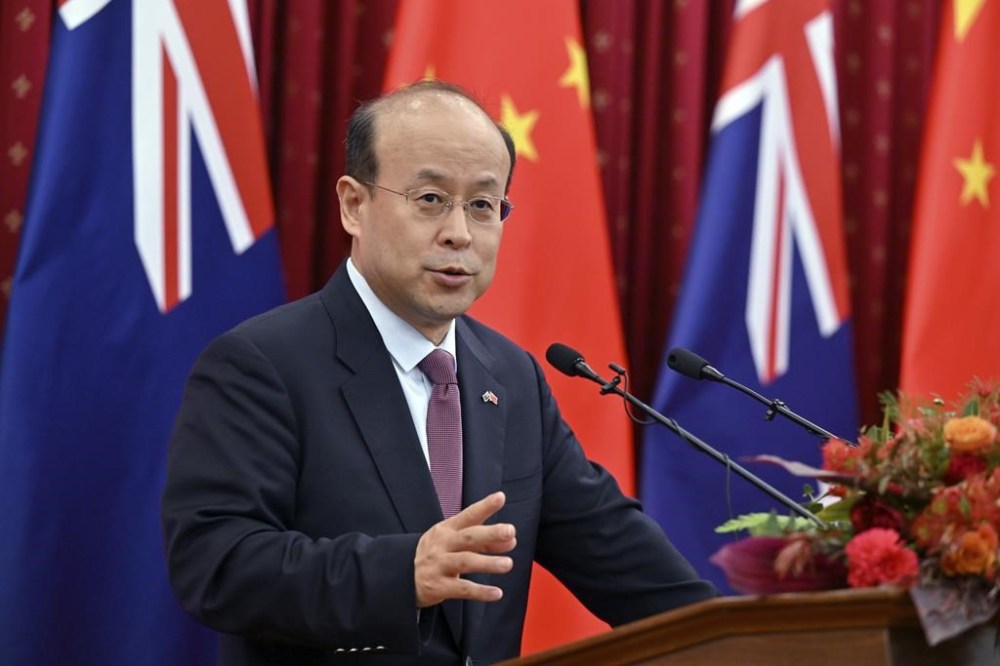Top Chinese diplomat says support of Pacific nations with policing should not alarm Australia
Advertisement
Read this article for free:
or
Already have an account? Log in here »
To continue reading, please subscribe:
Monthly Digital Subscription
$0 for the first 4 weeks*
- Enjoy unlimited reading on winnipegfreepress.com
- Read the E-Edition, our digital replica newspaper
- Access News Break, our award-winning app
- Play interactive puzzles
*No charge for 4 weeks then price increases to the regular rate of $19.00 plus GST every four weeks. Offer available to new and qualified returning subscribers only. Cancel any time.
Monthly Digital Subscription
$4.75/week*
- Enjoy unlimited reading on winnipegfreepress.com
- Read the E-Edition, our digital replica newspaper
- Access News Break, our award-winning app
- Play interactive puzzles
*Billed as $19 plus GST every four weeks. Cancel any time.
To continue reading, please subscribe:
Add Free Press access to your Brandon Sun subscription for only an additional
$1 for the first 4 weeks*
*Your next subscription payment will increase by $1.00 and you will be charged $16.99 plus GST for four weeks. After four weeks, your payment will increase to $23.99 plus GST every four weeks.
Read unlimited articles for free today:
or
Already have an account? Log in here »
Hey there, time traveller!
This article was published 17/01/2024 (659 days ago), so information in it may no longer be current.
CANBERRA, Australia (AP) — China’s ambassador to Australia, Xiao Qian, sought to reassure Wednesday that China’s increased involvement in the Pacific, particularly in policing efforts, should not be a cause of alarm for Australia.
Xiao, speaking at his first news conference of the year in Canberra on Wednesday, maintained that Australia should not harbor anxiety about China’s intentions in the region.
“Pacific Islands countries is an area where China and Australia can cooperate and can contribute together instead of asking them to choose between the two,” Xiao said. “What China has been doing is to help them to for their social stability, economic development and for bilateral trade relations.”

Concerns of China’s encroachment in the South Pacific had escalated last year when the Solomon Islands signed a security pact with China, raising fears of a military buildup in the region.
“We’re not seeking military strategies, we’re not seeking military purposes, and there’s no need for any so-called anxiety on the part of Australia,” Xiao said.
Addressing Nauru’s decision on Tuesday to switch diplomatic recognition from Taiwan to China, Xiao said it was a sovereign choice by Nauru and would not impact Australia’s relations with the small island nation.
“The relation between China and Nauru is a reflection of the overwhelming, increasing consensus in the international community that in this world, there’s only one China, and Taiwan is part of China.”
Regarding Australia-China relations, Xiao acknowledged that ties had stabilized after Prime Minister Anthony Albanese’s visit to Beijing in November, marking the first by an Australian leader in seven years and the lifting of trade blocks imposed in 2020 on a raft of Australian exports.
He expressed China’s desire ‘to continue the good momentum’ in further improving the relationship, while also highlighting the need for collaboration in the defense sector.
“The defense relationship between our two countries is an area really we need to put more inputs and work harder on, Xiao said. ”This is an area it’s so important to the mutual trust and confidence between our two countries and two peoples. If you can have trust between two militaries, you do have real trust.”
Xiao added that China had lodged a diplomatic protest with Australia over its congratulations to Taiwan, which China claims as its own, over the election of a new president.
___
Follow AP’s Asia-Pacific coverage at https://apnews.com/hub/asia-pacific

